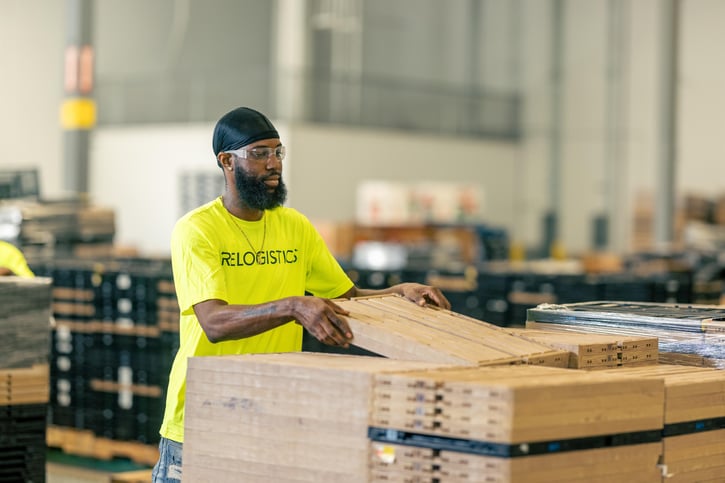Green business is good business. Implementing sustainable procurement strategies puts companies at the forefront of environmental consciousness and saves money. Choosing a pallet provider committed to sustainability can help you meet your company’s environmental targets, providing a significant benefit for your business and customers.
What is Sustainable Procurement?
Sustainable procurement is the process of buying goods and services that are both socially responsible and environmentally friendly. It involves taking into account various factors such as recycled materials, energy efficiency, sustainable packaging, hazardous chemicals, and water conservation. Incorporating sustainable procurement into your business decisions can lead to significant environmental impact reduction while also improving your bottom line.
Managing a successful supply chain requires careful attention to multiple factors. It’s crucial for manufacturers, retailers, and distributors to operate efficiently to remain competitive in the marketplace. By including sustainability in supply chain decisions, such as using recycled pallets or managing waste removal processes responsibly, companies can make a real impact on their business, reducing their environmental impact while saving money. Implementing the right program can also result in saving money by converting your company’s waste into a commodity.

Benefits of Sustainable Procurement?
At Relogistics, we work towards building a sustainable supply chain for our customers daily. In the past year, we managed over 305 million pallets and 580,000 reusable containers. Here are some of the ways sustainable procurement practices benefit the pallet and supply chain industry:
Quality Control
For sustainable procurement to be effective, suppliers must adhere to strict safety and durability guidelines. For example, in the pallet industry, this may involve meeting ISPM 15 standards to prevent the spread of plant pests and diseases in wood, or following GMA pallet specifications for strength, size, and load capacity. This results in protecting customers from receiving substandard pallets and preventing businesses from wasting resources on unnecessary purchases due to poor quality control.
Cost Savings
By implementing sustainable procurement strategies, companies can identify areas for improvement, reduce energy consumption, extend the life of their pallets and containers, and ultimately save money. Onsite pallet repair, for instance, is a program that can lead to cost savings. Working with a total pallet management provider that offers this service enables you to repair used pallets directly in your distribution center or warehouse, reducing purchase and waste disposal costs.
Future Proofing
Partnering with a total pallet management provider who understands sustainable procurement practices is an investment in the future. These providers serve as subject matter experts who can ensure your supply chain remains compliant with various safety and environmental regulations as well as offer insights into emerging trends and technologies.
Preserve Natural Forests
By sourcing more sustainable materials such as recycled wood pallets, businesses can reduce the amount of timber being harvested, helping to preserve natural forests while reducing the strain on the environment.
Reduce Environmental Risks
Recycled wood pallets are made from nontoxic materials and without additives that could harm the environment. By limiting the use of harmful materials in production, the risk of regulatory violations is reduced.
Choosing a Pallet Partner
At Relogistics, we are committed to reducing our environmental footprint and promoting good environmental practices among our suppliers. We evaluate the sustainability of our customers’ supply chains regularly, including the usage of materials, production methods, and waste removal processes. Our job is to help you define areas where your operation can increase efficiency and sustainability - helping us all to enjoy a greener supply chain and a healthier planet. Get in touch with our team to start the conversation.
